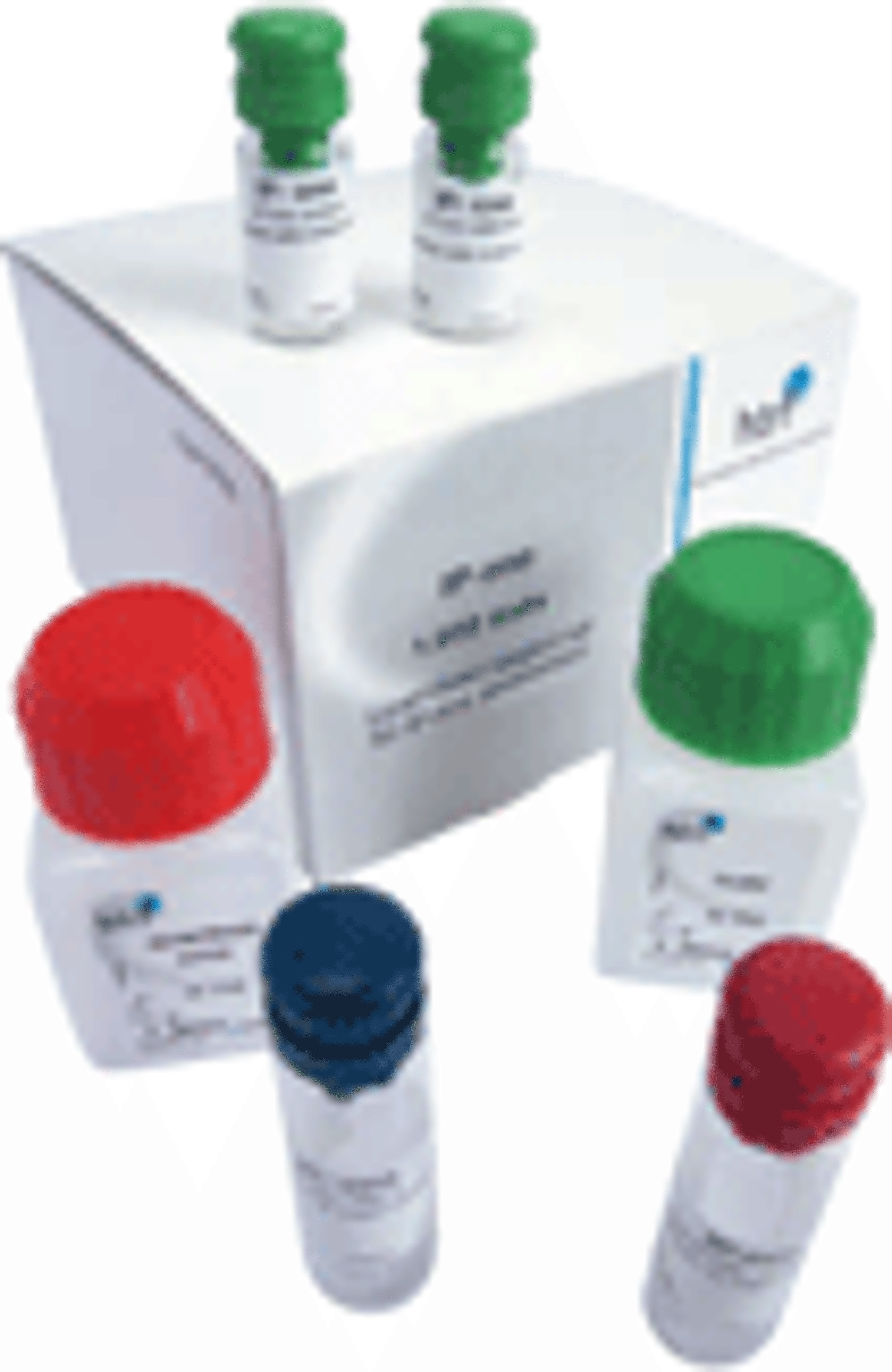Cisbio Bioassays’ IP-One Terbium Assay Enables Measurement of Different Compound Classes Using Single Technology
23 Feb 2009Effective profiling of inverse agonists, agonists and antagonists of Gq-coupled receptors shows potential of assay kit, unique terbium-based technology.
Cisbio, a global developer of HTRF® (Homogeneous Time-Resolved Fluorescence) technology and services used in assay development and drug screening, announced that its IP-One Terbium (Tb) assay has been proven to effectively profile agonists, antagonists and inverse agonists of Gq-coupled protein receptors. In experiments conducted by scientists at F. Hoffman La Roche, Ltd. (Roche), IP-One Tb confirmed that it is the only assay that enables pharmaceutical researchers to measure these different compound classes using one technology.
IP-One Tb is the first cell-based high throughput system that can easily detect inositol(1)phosphate (IP1), one of the major products of the phosphatidyl inositol cascade and which tightly correlates with Gq-coupled activity. Scientists at Roche in Basel, Switzerland chose IP-One Tb for the high-throughput profiling of confirmed hits from a primary screening. Due to the properties of terbium cryptate-based HTRF, high excitability, sensitivity, enhanced signal-to-noise ratio, low false-positive rate, and full reader compatibility, Roche found full and partial agonists, antagonists and neutral antagonists, and full and partial inverse agonists. Inverse agonists, in particular, have been difficult to study using existing assay technologies, such as calcium release.
“The excellent match of IP-One Tb’s terbium cryptate with the parallel readout of our reader allowed us to run several thousand curves with high data quality in only a few weeks,” said Michel Dietz, Roche Discovery Technologies, who led the project. “Its superior attributes enabled us to optimize our research in terms of time, cost, and results.”
Roche presented the results at the 2008 MipTec conference in Basel in a poster entitled “High Throughput Hit Profiling with the HTRF IP-One Terbium kit to determine Agonists, Inverse Agonists and Antagonists.” Roche’s poster won third prize in the conference poster competition out of over 100 entries from academic and industrial institutions, the highest poster prize awarded to an industrial entry.
Cisbio has long been a leader in the development of a comprehensive GPCR second messenger accumulation assay platform. With a terbium-based cAMP assay to complement IP-One Tb, Cisbio provides a terbium technological platform which investigators from pharmaceutical companies such as Roche can use to assess all GPCR targets. Inverse agonists, which block the natural function of a receptor, have been of particular interest to pharmaceutical researchers for two decades. Highly relevant in the development of pharmaceuticals which act on slow-acting receptors, inverse agonists are investigated for the treatment of central nervous system disorders.

